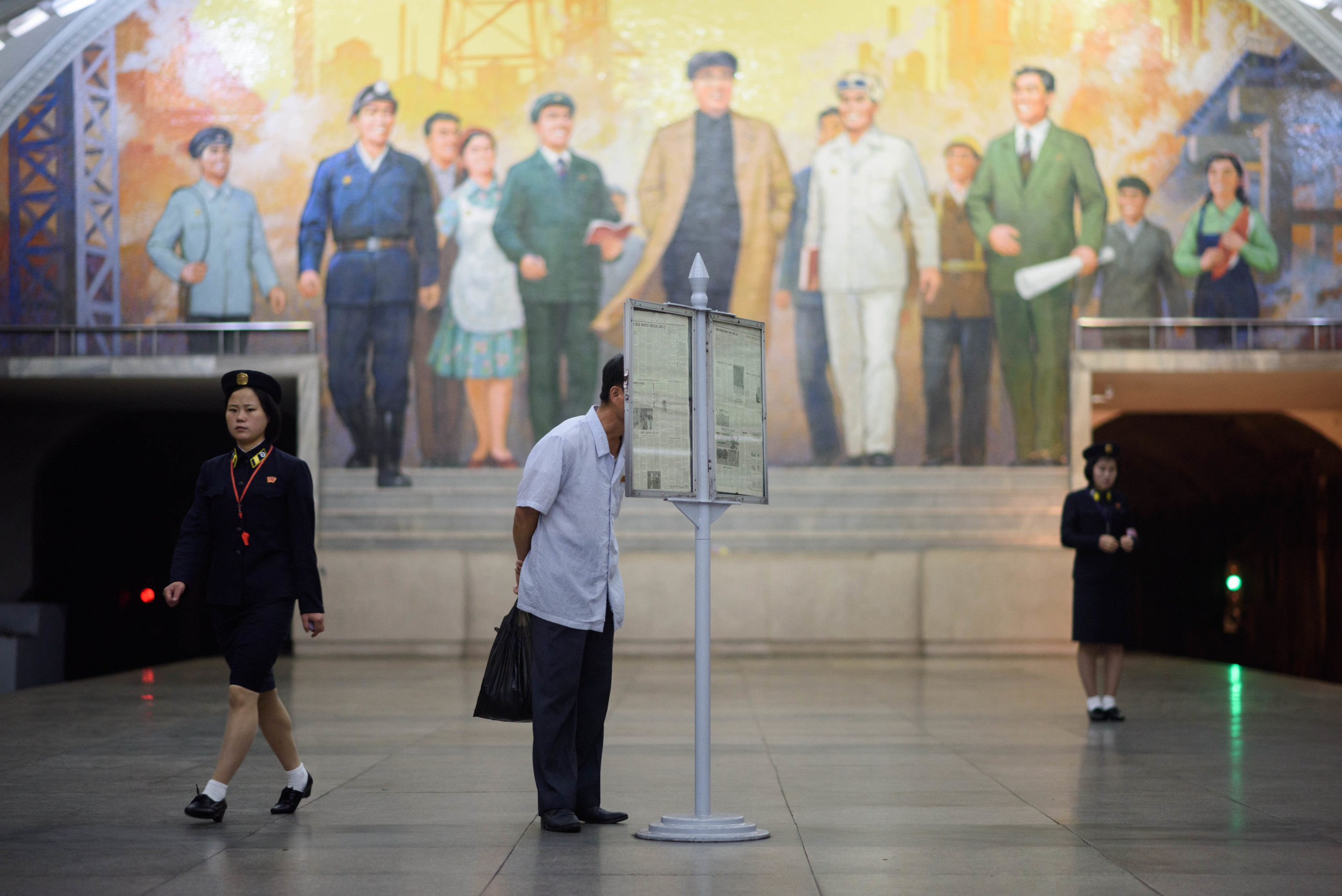DOWNLOAD PDF
THE ISSUE
Whoever wins the presidency in 2020 will face two primary concerns regarding North Korea. The first is the need to relieve the suffering of the nearly 27 million North Korean people brought about by their government’s violations of the full range of their human rights. The second is the threat of mass killing as the result of the use of nuclear weapons. The two concerns are inextricably bound: they arose together, they persist together, and they can only be addressed together.
The U.N. has found that several of the North Korean government’s violations rise to the level of ‘crimes against humanity.’ The facts of the North Korean government’s abuses of its people’s human rights are long-established, well-known, and no longer in doubt. Hundreds of thousands of women, men and children are held in a gulag of political prison-labor camps as a result of some supposed disloyalty. For many, this is a death sentence. Torture is used, permitted, and encouraged in jails, camps, and prisons. Whole families are ‘disappeared’ into a system that does not recognize the necessity of charge, defense, or trial. Executions are routine and often public, held before the eyes of schoolchildren.
The government’s resource decisions ensure that all but the elite are hungry, malnourished, or starved. Access to fundamental rights such as education, housing, and health care is distributed in a discriminatory fashion as punishment and reward. The system of state surveillance is so pervasive that North Koreans dare not speak, gather together, read, worship, or travel. Any attempt to leave the country is defined as treason and punishable by death.
There is a distinct and fundamental connection between the human rights violations committed by the North Korean government and its willingness to develop, deploy, and export weapons of mass destruction. We must consider the possibility that a government that is willing to sacrifice the wellbeing and the very lives of its people in order to maintain power would also be willing to accept levels of war casualties on a massive scale.
The North Korean government’s willingness to sacrifice the wellbeing of its people directly and tangibly enhances its ability to develop and deploy nuclear weapons. All of the resources that should be prioritized to ensure that North Koreans’ rights to food, shelter, employment, medical care, and education are met are instead spent on military programs, including the development of WMDs.
TALKING POINTS
- The plight of the North Korean people for the last 50 years has been horrific. Hundreds of thousands of women, men, and children are languishing in gulags, and the world has heard repeated accounts of torture or executions for disloyalty. We cannot continue to sideline human rights while we seek progress on de-nuclearization.
- When it comes to North Korea, the issues of why and how a regime decides to seek nuclear weapons and starve its own people are intrinsically linked and cannot be separated.
- The United States and the international community have a special responsibility to address the concerns raised by North Korea’s repressive government because there is such a small possibility for the voice of a domestic North Korean opposition to be heard. We must amplify the few voices of those who have escaped and be a champion on human rights once more.
RECOMMENDATIONS
- The United States should work through the United Nations, regional forums, and like-minded allies to address human rights violations in North Korea. The initial demand should be for an end to the practice of incarcerating families and for expedited reunions of families separated by the Korean Demilitarized Zone. This includes pushing for a United Nations Security Council meeting on human rights in North Korea, as well as urging China and Japan to be more assertive in challenging the North Korean government’s human rights record.
- The United States should appoint a Special Envoy on Human Rights in North Korea and adequately fund this position and office that will focus on galvanizing the international community, holding senior North Korean officials accountable, and coordinating and pushing for access to information in North Korea.
- The United States should provide necessary humanitarian aid and urge the North Korean government to accept international humanitarian aid, with proper monitoring consistent with international standards of transparency and accountability.
FOR MORE INFORMATION, PLEASE CONTACT:
Joanne Lin
National Director, Advocacy and Government Affairs
(202) 509-8151
